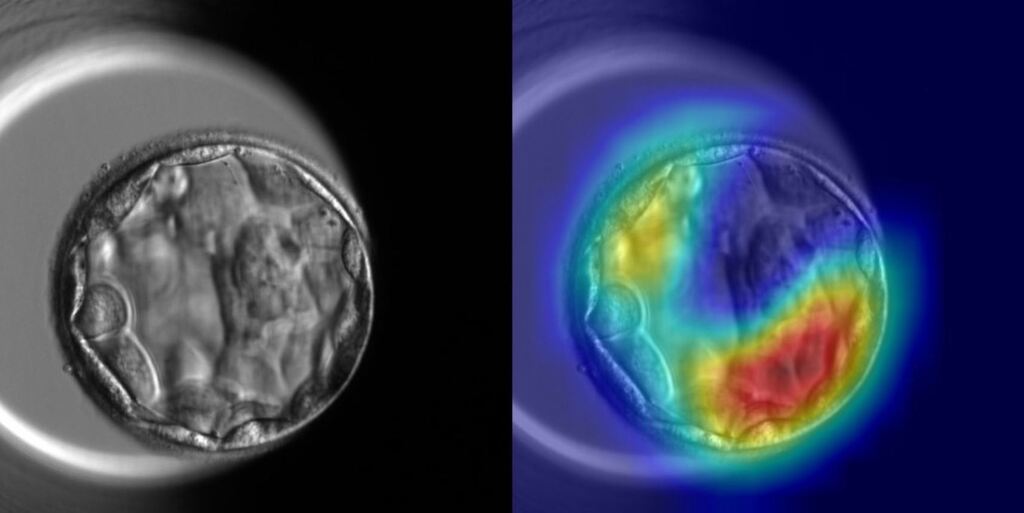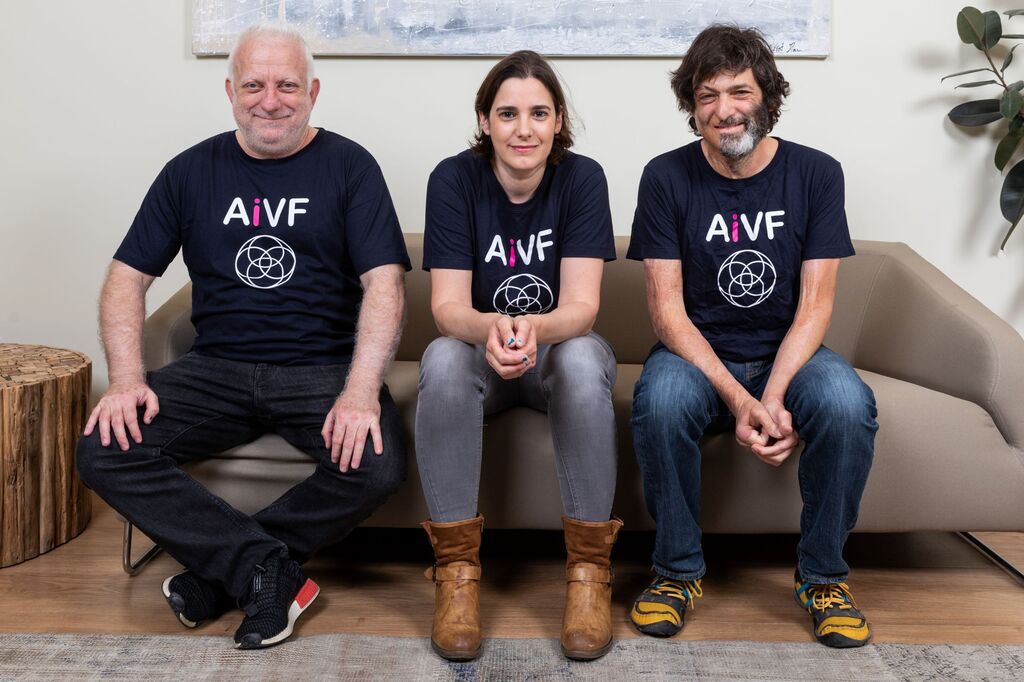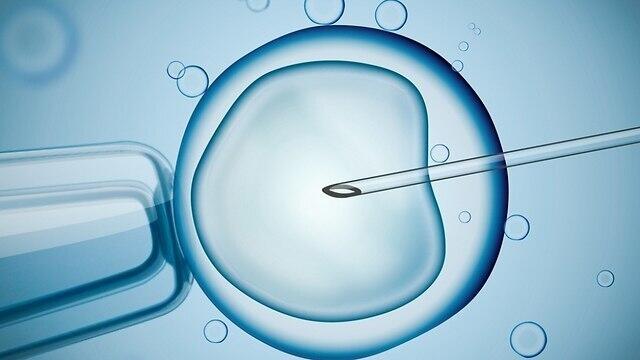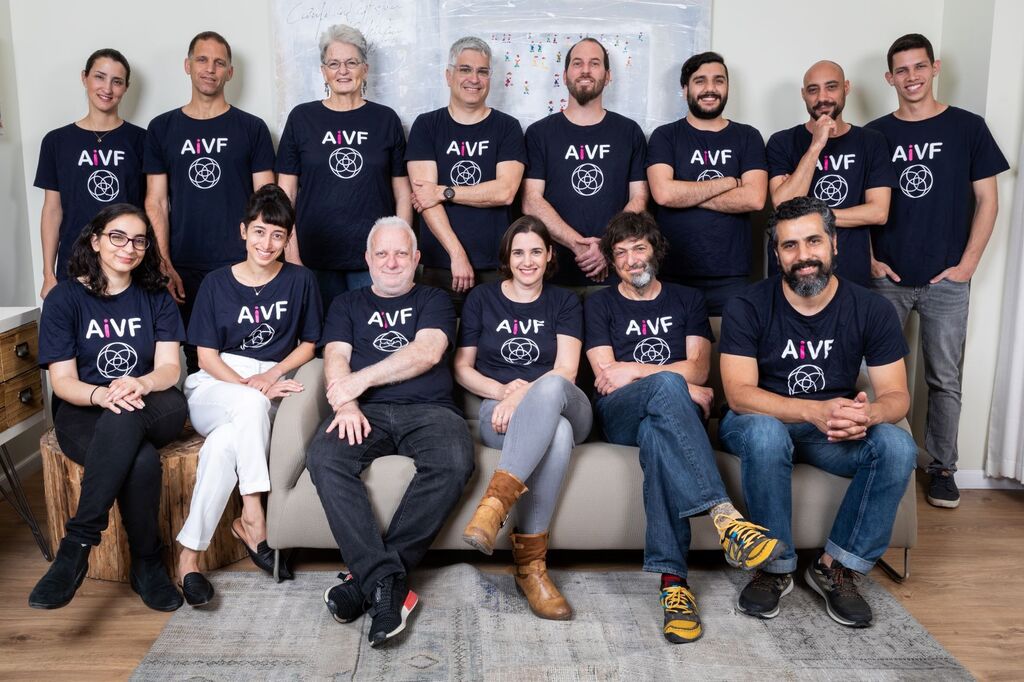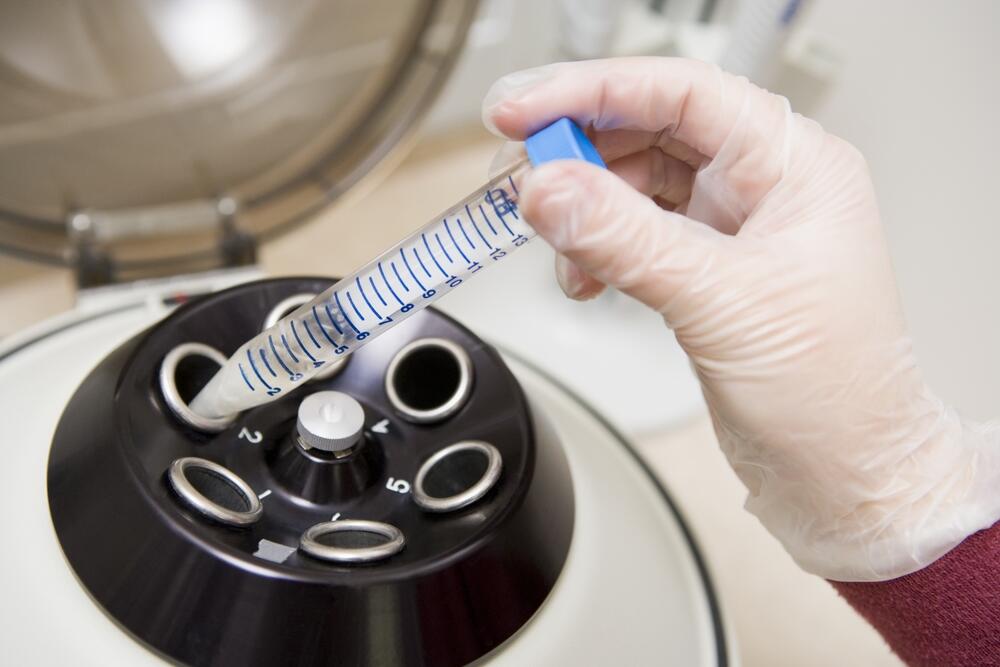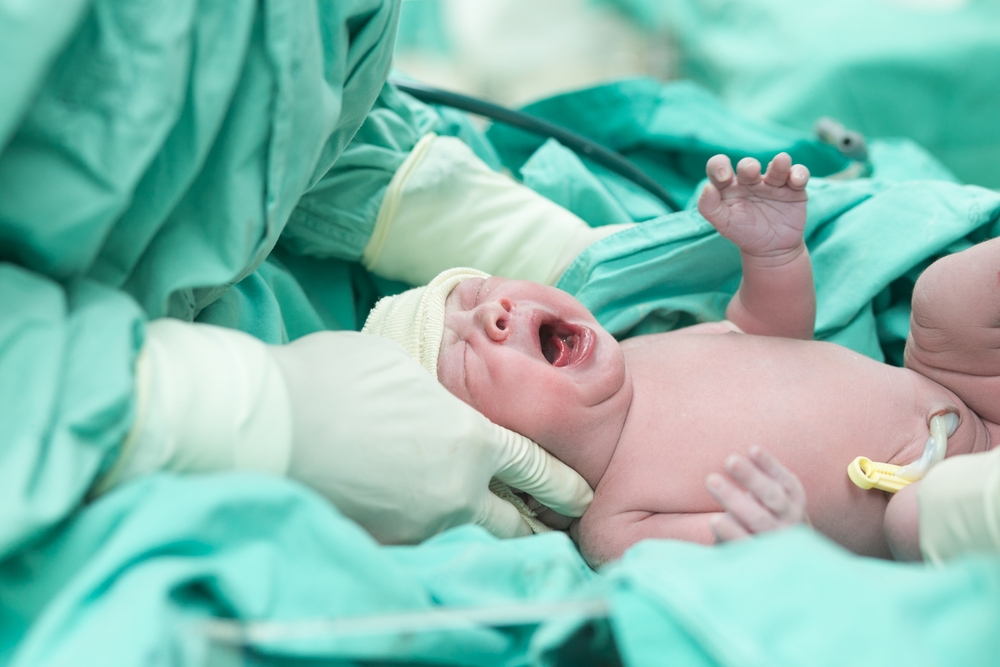Israeli startup company AiVF is on the verge of a breakthrough in the world of IVF with the use of AI technologies, that could become a giant step forward for medical technology.
As is the case in every technological revolution, doubt emerges. In this case the question is whether it is fitting for AI to determine who are the humans that come into this world.
The IVF process was introduced in the 1940s and to this day every test tube baby that comes into the world brings great excitement. And without modern medicine those infants would not have been born.
The process has not changed significantly over the years: eggs are harvested from the mother, sperm from the father and then mixed in a test tube (actually a petri dish) and then nature works its course.
Then comes the critical stage. Once all the eggs are fertilized, a decision must be made on which embryo has the highest chance of becoming a perfect human.
This is the stage at which embryologists and doctors play God, choosing which embryo is transferred into the womb and which ones are discarded.
Those decisions are difficult, and in many cases controversial. Only one embryo in four is actually born, and women are forced to return repeatedly for painful treatments and in some cases do not succeed in giving birth.
AiVF wants AI to take part in the decision-making process and recommend to the doctors which embryos to choose.
The company claims that an improved decision-making process will reduce the number of treatments required and substantially reduce the cost to the would-be parents. When their technology receives regulatory approval, it may lead to a huge business breakthrough.
Prof. Daniel Seidman, an IVF expert and one of the founders of AiVF, says: “We have been in the field for years and we have been aware for some time that a major step forward must be made. This is one of the areas in medicine that is most dependent on human decisions, which are a bottleneck.
"You need to make decisions regarding which embryos will be transferred to the womb and the results are extremely critical. Technology based on big data compiles huge amounts of information that a reasonable person is incapable of dealing with and therefore AI has a huge advantage.”
The initiative to establish the company came from Daniella Gilboa, an embryologist and biostatistician who has for years been involved with the process of IVF.
“Everything started with my doctoral dissertation that turned into a startup,” she says.
“In Israel they do not really understand the need, since IVF is available to everyone, but in the U.S. the picture is totally the opposite. There, 90% of the population has no access to IVF because of the high cost of the process that requires many rounds of treatments and whose total cost can reach $100,000.
"In all too many cases people do not have the funds and they give up on their dreams of becoming a parent.”
AiVF was founded in 2018 by Gilboa and Seidman, and other experts joined them, including Prof. Shlomo Mashiach, whose field is infertility, and Prof. Dan Ariely, an expert in behavioral economics and a serial entrepreneur who is today involved in several intriguing startups.
AiVF currently employs 11 people at its offices in Tel Aviv’s Ramat Hachayal neighborhood and has raised $4.7 million, primarily from private investors.
At this stage clinical trials are being conducted in Spain and the United States, with the target markets of the technology being in Europe and the U.S.
So far one million images of embryos and 200,000 videos and medical data on 400,000 patients have been collected and the data bank is growing by the day.
AI is designed to reduce the time and improve the process and in so doing make it more accessible and cheaper.
Instead of an embryologist who is capable to making decisions on 10 embryos a day, AI is cable of examining hundreds of embryos simultaneously. And according to the developers the AI based process can make higher quality decisions than humans.
This translates into fewer cycles of treatment to achieve pregnancy prior to the birth of a happy baby.
“The advantage in Israel is that there is a lot of data and some of the leading AI experts in the world. We believe that this concept can save a lot of time, lead to a larger market and make IVF treatment more accessible,” says Seidman.
Gilboa recounts the story of a patient who underwent 10 treatment cycles, the embryos that were conceived in the lab appeared to be perfect to the leading experts in Israel, and even so none of the pregnancies reached fruition.
A genetic test found a defect in the embryos that the human eye could not detect.
“Here is where one of the most interesting technologies comes into play,” she says.
“The idea is to create a large database that includes every piece of information that comes out of an IVF lab; videos and images of embryos, the medical history of the woman, DNA sequencing of the embryo, details of the womb, and in short everything that can teach us about the entire process.”
The result is that AI will be able to identify an embryo that can succeed far more effectively than human experts can today.
Secret of life in five days
“We call this digital embryology,” says Seidman. “The human eye has its limitations, but with machine vision factors inside the cell can be track that the human eye is incapable of seeing and this is one of the things we have proved.
"At the next European conference, we are going to display something that no one else in the scientific community was aware of up to now: that the gender of an embryo can be identified on the fifth day. Processes and chromosomal changes like down syndrome and all the secrets of human life can be discerned in these five days. It's crazy and incomprehensible.”
Ariely is the chief behavioral officer at the company, a title that translates into dealing with the question of how this new fertilization process will impact humanity - especially women.
He says research shows that women who require IVF treatments are forced to forgo promotions in their career, in their studies and more, and all of this because of the uncertainty of if and when they will be pregnant.
“I was surprised at the huge number of women that were impacted,” he says.
According to Ariely, the innovative technology developed by AiVF will ease the uncertainty of when a mother will get pregnant.
“If a woman knows that instead of four to five cycles of IVF she will need only two, then we have increased the ability to plan a pregnancy," he says.
"If a 30-year-old woman wants three children by the age of 40, when does she need to start, and when to switch over to IVF? These are complicated questions, and we need to understand women and identify where there are failures and improve the decision-making process.”
AiVF’s AI, like many systems in other fields, is based on deep learning. The system trains on millions of images that have been tagged by experts as an undamaged embryo or one that is defective.
In addition, the system accumulates a huge amount of information on the medical histories and the stages of treatment undergone by the women.
It also has information about which pregnancies were successful and a healthy infant was born.
Combining these huge quantities of information enables the technology to identify significant data formats that a human is incapable of detecting and to predict better than any expert doctor which embryo stands the best chances of being brought to term.
“We as embryologists know how to make classifications and to say which is a good embryo as opposed to a bad one, but we don’t know how to predict,” Gilboa says.
"Here is where the capabilities of AI come in. In the first stage we taught the AI technology to classify like an embryologist, and this led to the first publication of an article in NATURE magazine in 2018," she says.
"The next stage was exceedingly difficult and required the system to give real medical insights and be fail safe. Many groups working on this around the world get stuck on the insufficient level of accuracy and here we introduced a different approach, we removed this barrier," she says.
"Our approach is biological, and we teach the system the biology and the AI gives a forecast and also explains to the embryologist how and why the determination was arrived at.”
And here we are facing ethical questions in full force. For example, the problem of deviation. An AI system for identifying faces can fail, incorrectly identifying a Black man due to a deviation by the developers.
A system for granting credit could also fail and actually grant credit on bad terms because of a different form of deviation.
But a system for making decisions on bringing children into the world might make mistakes such as bringing children into the world with birth defects or worse, preventing the birth of children who could live happy lives.
One doesn’t change the decisions of doctors
Would AiVF’s AI technology be better at recognizing embryos in the Western world, embryos from rich - and in most cases white - families? If so, then maybe its decisions regarding embryos in Asia might not work.
Will the big data prove itself when it comes to why it was in fact developed, namely the birth of children with a minimum of treatment cycles, and perhaps leaving other characteristics of these children to be discovered only after their birth?
Will the involvement of AI in the decision-making process of bringing children into the world lead to a generation of children who are different from those who were born naturally?
The AiVF entrepreneurs say that these considerations are being examined and closely checked.
“This is a system that supports and assists the decision-making process and does not replace decisions made by doctors,” says Gilboa.
According to her, the company plans to expand its database to include data from mothers and embryos from Asia, including India.
“We are trying to diversify the ethnic mix, and this is not easy, since this is a very expensive technology and is skewed towards the wealthy,” Seidman says.
“But on the flip side, if you are aware of this you can definitely fix it.”
Seidman stressed the positive contribution of the technology and pointed out that it will allow parents in the third world to receive advice from experts in the U.S. or Israel without having to physically travel to those countries.
Ariely said that the problem of deviation in AI occurs when the system learns incorrect decisions made by humans, such as who is suitable for a job.
“The economic problem is one of validation. When there is a real criterion there are usually no problems. In the case of AiVF, we check embryos that were successfully implanted and those that were not, so that nature tells us who will succeed. It is less a question of a human decision.”
Won’t a problem arise when the aim of AI is to bring about the birth of a child without any other considerations?
“It may be that the model will take embryos with a low chance of being successfully implanted and determine that they should not be used, and maybe if they were to have been born, they might have been found to be geniuses," says Ariely.
"Our criteria are not those of being a genius or whether the infant is more verbal or creative etc., but rather to ensure a birth.
"This is an interesting point that should be considered. But we must understand that first and foremost we need for the children to be born and then to think about the other matters.
"Also, the question of determining which embryos will be born and which ones will not be is already a difficult one and it will take time to grapple with.
“The question whether it is ethical to use AI to control all sorts of issues is legitimate, but one must also ask whether it is ethical not to use AI. We at AiVF believe that we will be able to cut the number of IVF cycles needed in half.
"One could then ask if it is ethical because the children will be more alike in general. But on the other hand is it ethical to allow women to suffer during additional cycles of IVF that are no longer necessary?
"These are ethical issues with a low probability of happening - and from the opposite perspective they greatly improve women’s lives.”


